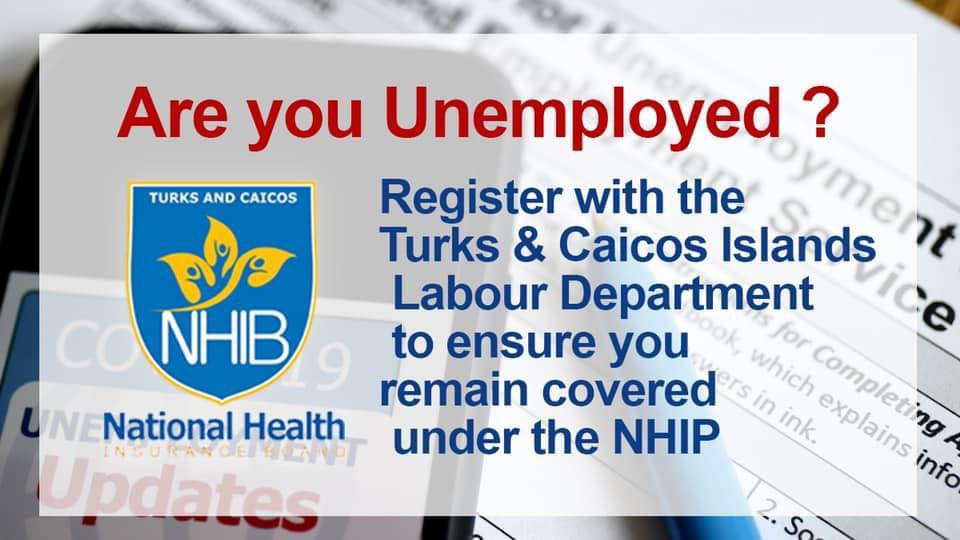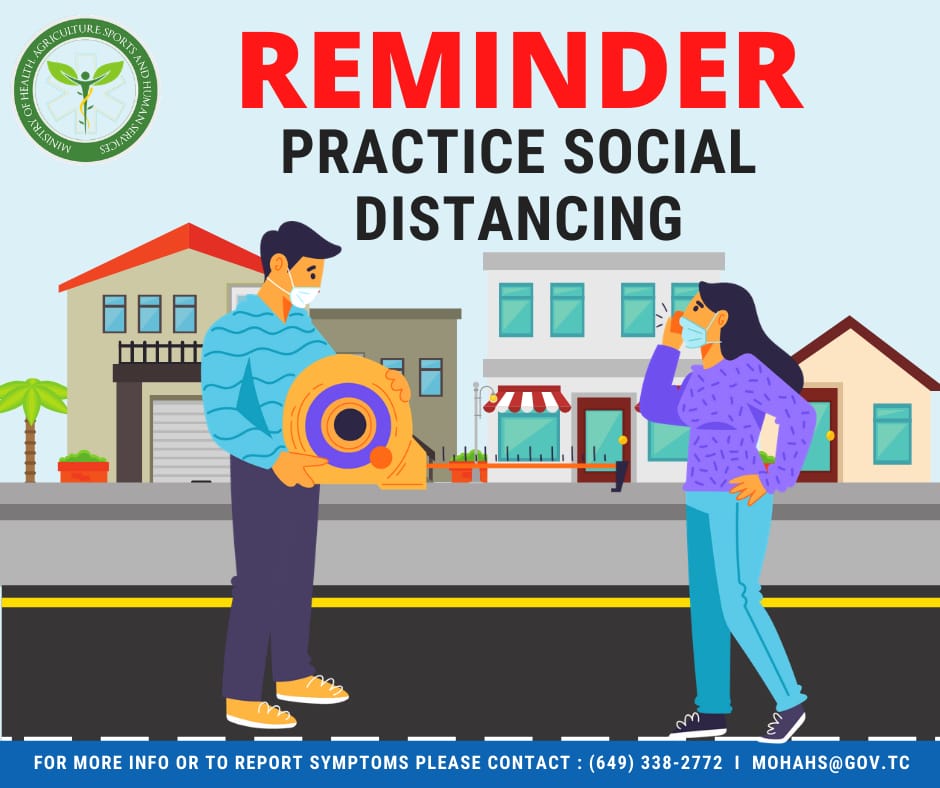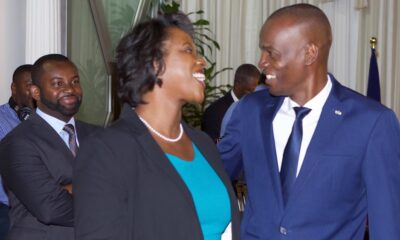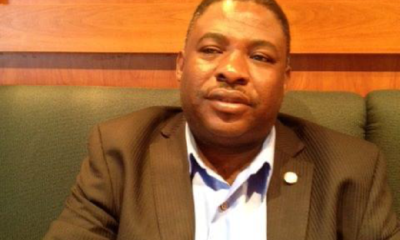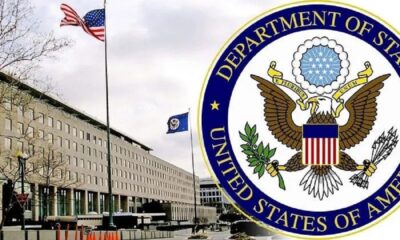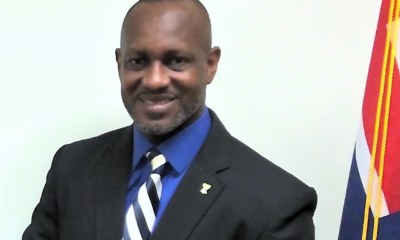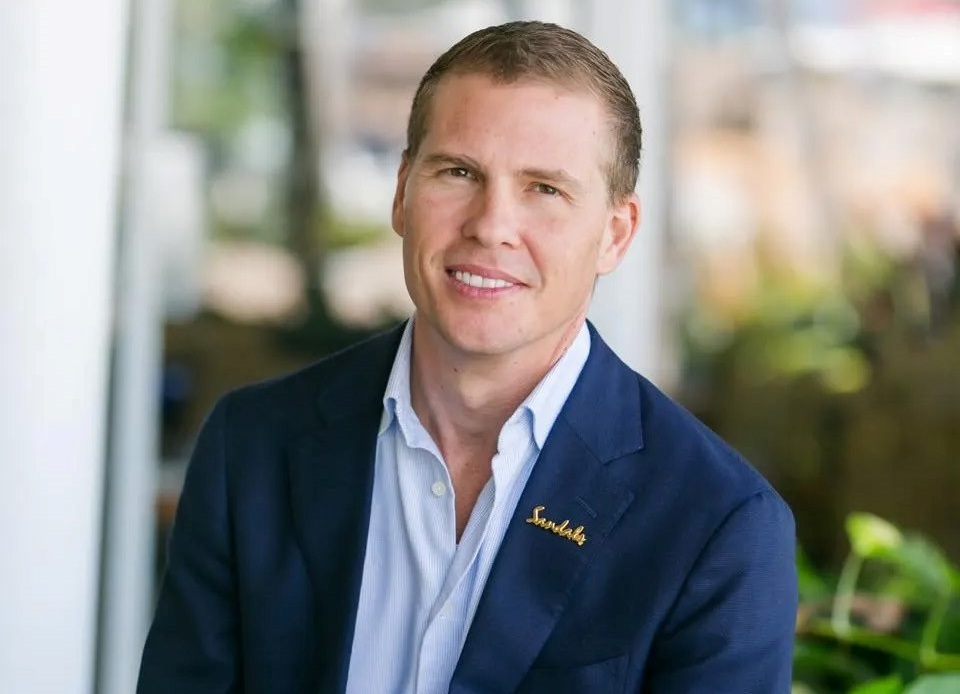#Haiti, July 8, 2021 – First Lady Matine Moise has survived the attack on her home which killed her husband, the 58th president of the Republic of Haiti, Jovenel Moise.
In a story which is heartbreaking, horrifying, angering, confusing and still developing there are many questions including how the assailants managed to infiltrate the usually heavy security surrounding the president. Security Forces are layers thick; placed in his neighbourhood, on the compound of his home and within the house. Yet, around 1 a.m. on Wednesday the commandoes got into the private home and gunned down 53-year-old Moïse, his wife was also struck by bullets.
Now, the first lady is airlifted to medical care in South Florida and prayers are launched in hopes she will pull through despite having sustained critical injuries.
Weeping has been reported to Magnetic Media… those who loved the president are mortified by the news.
Others who know of the volatility of Haiti which has erupted several times in politically driven protests said it was hot on the ground, and his assassination is not a huge surprise.
Haiti has in recent years, under the leadership of Moïse has seen controversial and unpopular decisions made. Old friends like Venezuela, disappointed. A relationship with China abandoned in favour of Taiwan. New strategies to end food dependency and boost agriculture drawing warnings from the Dominican Republic; allegedly exploitive contracts and policies ended, which have offended the ‘Boujwazee’ and the Church.
Moïse was seen as a maverick, who did what other country leaders had failed to do, but his political naiveté may have cost him his life. President Moïse was also seen as a dictator who refused to demit office and hold a general election as constitutionally mandated. The confirmation of the assassination came early this morning from the interim PM of Haiti, Claude Joseph.
Joseph locked down the country; closing sea and air ports. He barricaded the capital Port Au Prince; not allowing motor vehicles in or out. Many guess that it must be in an attempt to capture the killers and they were right. The border between the Dominican Republic and Haiti was closed following the attack.
Haiti now also facing a possible conundrum as it is unclear how the country proceeds in terms of national leadership. The acting Prime Minister, because he is “acting” may not be able to assume the role of President. There is no parliament, because constitutionally it had to be dissolved since January 2020 and the Supreme Court Justice, in recent month died, reportedly after contracting the coronavirus.
On Monday, before his murder, President Moïse announced that he had identified a medical doctor – Ariel Henry – to take on the role of Prime Minister of Haiti. A move he justified as necessary to guide Haiti through the coronavirus pandemic.
Dr. Henry would have been the seventh prime minister in four years and would have taken over as Prime Minister of Haiti at the end of this week.
Our news organization was informed there is no such thing as a vice president in Haiti; a change Moïse had hoped to bring if re-elected along with other constitutional changes which had been promoted in a referendum. Some of those amendments were criticised for seeking to give too much power to the executive. An election was announced for September in Haiti.
Prime Minister Joseph has informed media that he is in charge of Haiti now.
As for video circulating where you can hear the order to “stand down”, it is legitimate and it is said dark blue trucks pulled into the compound, men posing as United States D.E.A. officers came in and they were the ones who gunned down Moïse.
“Barbaric”, “cowardly”, “worrisome”, and “atrocious” are among the descriptions of the way Jovenel Moïse met his untimely demise, coming from leaders around the region and around the world.
Turks and Caicos Premier, Washington Misick said it is horrific and “My prayer is that the perpetrators are found and held accountable for their malicious actions and that peaceful resolve and good order can arise from such a horrible tragedy.”
The murder of Moïse is particularly shocking because civilized countries of the world have come a long way from times when assassination is the way to make the point or win an argument.
From our media house (Magnetic Media) which has spent decades covering the people, places and plans of Haiti, we extend our deepest condolences.
See pages 21, 22 and 23 in our photo tribute to the slain President of Haiti, Jovenel Moïse.
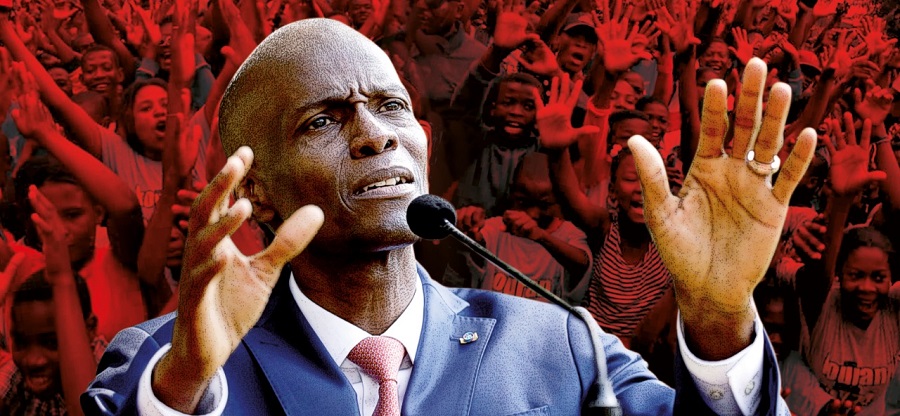

 News1 week ago
News1 week ago
 Bahamas News1 week ago
Bahamas News1 week ago
 Bahamas News6 days ago
Bahamas News6 days ago
 News1 week ago
News1 week ago
 Health6 days ago
Health6 days ago
